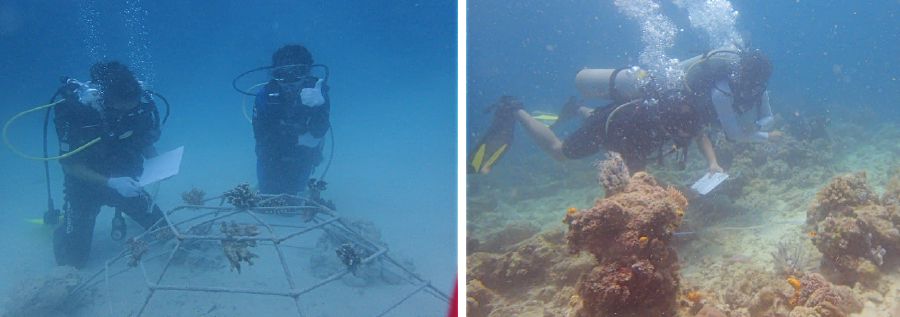By Olivia Miwil - June 29, 2021 @ 6:39pm
SEMPORNA: The destruction of coral beds off Mabul island near here is affecting the livelihoods of coastal communities.
In the June 25 incident, a barge carrying construction materials for a public project at the island had destroyed corals at a world-famous dive site - Paradise 1.
A disheartened WWF-Malaysia said the implication of the incident went beyond 'broken corals'.
Based on findings from the Semporna Marine Ecological Expedition in 2012, the island is populated with communities that depend on tourism and fishery, not to mention the 155 fish species found in Mabul.
Mabul Island is an important place for the world's biodiversity, for it is part of the Coral Triangle Region - a marine region that spans those parts of Indonesia, Malaysia, Papua New Guinea, the Philippines, the Solomon Islands and Timor-Leste.
The place with abundant biodiversity contains at least 500 species of reef-building corals, of which 76 per cent (605) of the world's coral species (798) are found in the Coral Triangle, the highest coral diversity in the world.
The incident has no doubt wrought serious damage to not only the ecosystem but also to the communities' future livelihood.
"Losing essential parts of the marine environment such as coral reefs will generate ripple effects that cause much broader depletion to fisheries, tourism, and social economy or livelihood.
"Coral reefs protect coastlines from storms and erosion, provide jobs for local communities, and offer opportunities for marine tourism," said WWF-Malaysia marine head Monique Sumampouw.
Through a series of community engagement activities carried out by WWF-Malaysia and its partner organisations, local communities have gained significant awareness of the importance of their natural inheritance, and have since developed an irreplaceable connection with the coral reefs.
The local communities on Mabul Island have also identified coral reefs as an important resource to mitigate the impact of climate change.
Currently, a youth organisation on Mabul Island - IKLIM - is actively involved in coral restoration projects.
"As a resident on Mabul Island, I am disappointed to witness the damaged corals.
"I would like to urge the relevant authorities to take action to prevent similar incidents in the future, and to protect our coral reefs," lamented a IKLIM representative.
WWF-Malaysia is also calling for a thorough investigation to ensure accountability of those involved in damaging coral reefs at Paradise 1 dive site off Mabul island.
The non-governmental organisation said that it would back government agencies and the district officer of Semporna to take the necessary steps.
"WWF-Malaysia would like to emphasise the utmost importance of transparency throughout the process of approving development projects.
"In an extremely vulnerable and valuable area such as Mabul Island, an Environmental Impact Assessment (EIA) should be carried out to ensure a proper mitigation plan is in place and to avoid destruction due to negligence in sensitive areas."

Comments
Post a Comment